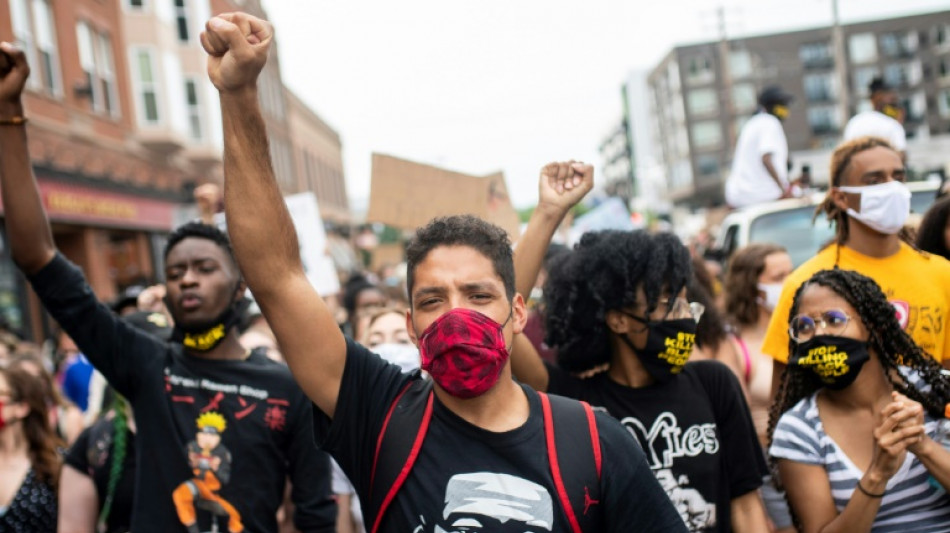
-
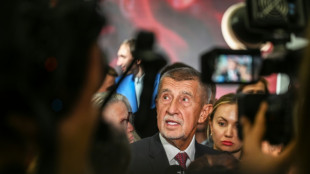 Babis to meet Czech president after party tops parliamentary vote
Babis to meet Czech president after party tops parliamentary vote
-
Death toll from Indonesia school collapse rises to 37

-
 OPEC+ meets with future oil production hanging in the balance
OPEC+ meets with future oil production hanging in the balance
-
Dodgers down Phillies on Hernandez homer in MLB playoff series opener
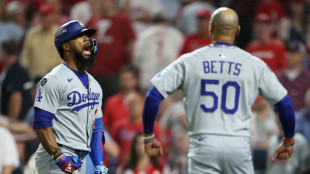
-
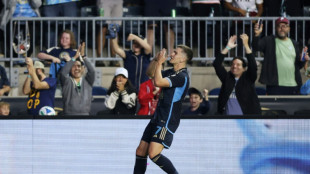 Philadelphia down NYCFC to clinch MLS Supporters Shield
Philadelphia down NYCFC to clinch MLS Supporters Shield
-
Syria selects members of first post-Assad parliament in contested process

-
 Americans, Canadians unite in battling 'eating machine' carp
Americans, Canadians unite in battling 'eating machine' carp
-
Negotiators due in Cairo for Gaza ceasefire, hostage release talks
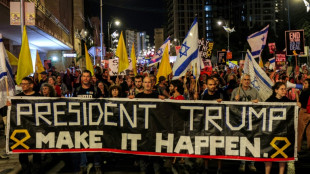
-
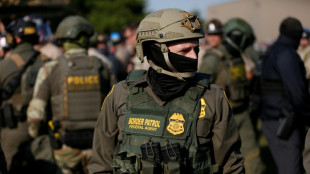 Trump authorizes troops to Chicago as judge blocks Portland deployment
Trump authorizes troops to Chicago as judge blocks Portland deployment
-
Wallabies left ruing missed chances ahead of European tour

-
 Higgo stretches PGA Tour lead in Mississippi
Higgo stretches PGA Tour lead in Mississippi
-
Blue Jays pummel Yankees 10-1 in MLB playoff series opener
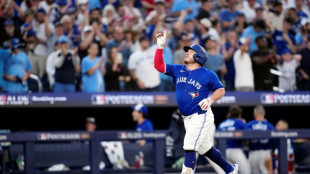
-
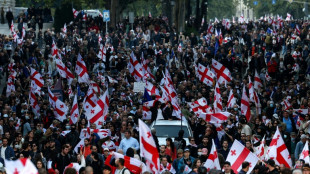 Georgia ruling party wins local polls as mass protests flare
Georgia ruling party wins local polls as mass protests flare
-
Depoortere stakes France claim as Bordeaux-Begles stumble past Lyon

-
 Vinicius double helps Real Madrid beat Villarreal
Vinicius double helps Real Madrid beat Villarreal
-
New museum examines family life of Mexican artist Frida Kahlo

-
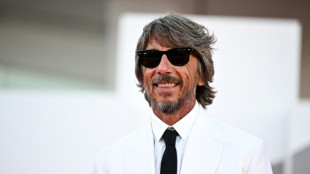 Piccioli sets new Balenciaga beat, with support from Meghan Markle
Piccioli sets new Balenciaga beat, with support from Meghan Markle
-
Lammens must be ready for 'massive' Man Utd scrutiny, says Amorim
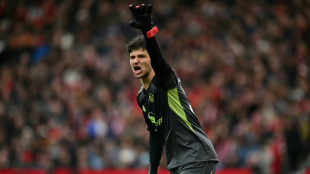
-
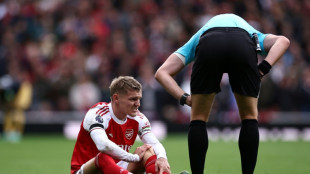 Arteta 'not positive' after Odegaard sets unwanted injury record
Arteta 'not positive' after Odegaard sets unwanted injury record
-
Slot struggles to solve Liverpool problems after third successive loss

-
 Netanyahu hopes to bring Gaza hostages home within days as negotiators head to Cairo
Netanyahu hopes to bring Gaza hostages home within days as negotiators head to Cairo
-
Ex-NFL QB Sanchez in hospital after reported stabbing
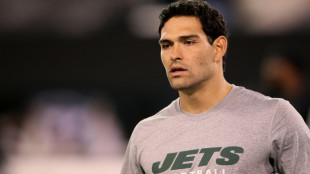
-
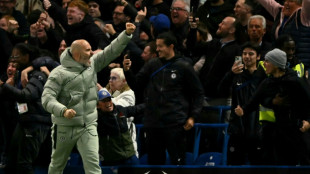 Liverpool lose again at Chelsea, Arsenal go top of Premier League
Liverpool lose again at Chelsea, Arsenal go top of Premier League
-
Liverpool suffer third successive loss as Estevao strikes late for Chelsea
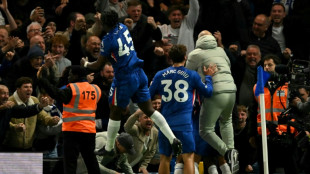
-
 Diaz dazzles early and Kane strikes again as Bayern beat Frankfurt
Diaz dazzles early and Kane strikes again as Bayern beat Frankfurt
-
De Zerbi living his best life as Marseille go top of Ligue 1

-
 US envoys head to Mideast as Trump warns Hamas against peace deal delay
US envoys head to Mideast as Trump warns Hamas against peace deal delay
-
In-form Inter sweep past Cremonese to join Serie A leaders

-
 Kolisi hopes Rugby Championship success makes South Africa 'walk tall' again
Kolisi hopes Rugby Championship success makes South Africa 'walk tall' again
-
Ex-All Black Nonu rolls back the years again as Toulon cruise past Pau
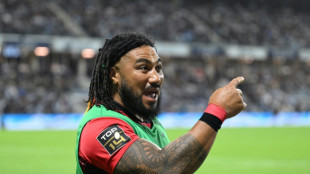
-
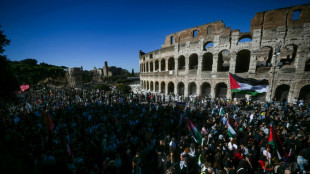 Hundreds of thousands turn out at pro-Palestinian marches in Europe
Hundreds of thousands turn out at pro-Palestinian marches in Europe
-
Vollering powers to European women's road race title

-
 Struggling McLaren hit bump in the road on Singapore streets
Struggling McLaren hit bump in the road on Singapore streets
-
'We were treated like animals', deported Gaza flotilla activists say
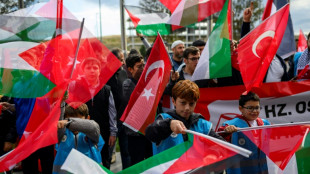
-
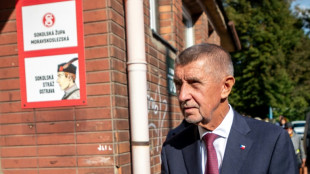 Czech billionaire ex-PM's party tops parliamentary vote
Czech billionaire ex-PM's party tops parliamentary vote
-
Trump enovys head to Egypt as Hamas agrees to free hostages

-
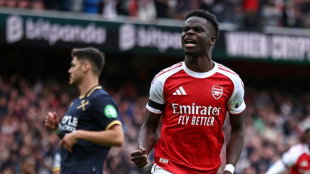 Arsenal go top of Premier League as Man Utd ease pressure on Amorim
Arsenal go top of Premier League as Man Utd ease pressure on Amorim
-
Thousands attend banned Pride march in Hungarian city Pecs
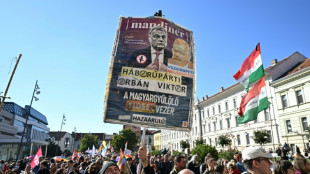
-
 Consent gives Morris and Prescott another memorable Arc weekend
Consent gives Morris and Prescott another memorable Arc weekend
-
Georgian police fire tear gas as protesters try to enter presidential palace
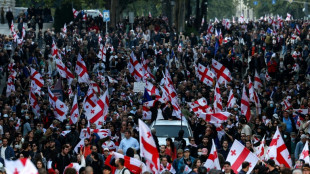
-
 Vollering powers to European road race title
Vollering powers to European road race title
-
Reinach and Marx star as Springboks beat Argentina to retain Rugby Championship
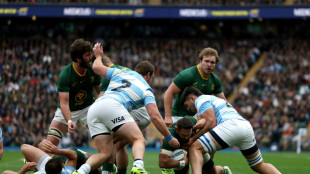
-
 Russell celebrates 'amazing' Singapore pole as McLarens struggle
Russell celebrates 'amazing' Singapore pole as McLarens struggle
-
Czech billionaire ex-PM's party leads in parliamentary vote
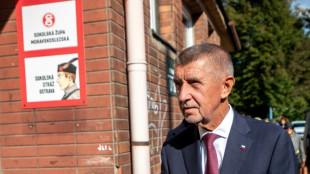
-
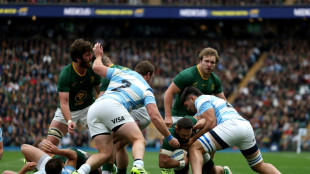 South Africa edge Argentina to retain Rugby Championship
South Africa edge Argentina to retain Rugby Championship
-
'Everyone's older brother': Slipper bows out in Wallabies loss

-
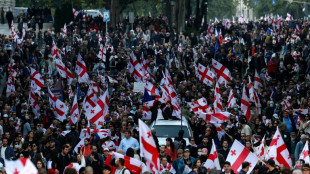 Thousands rally in Georgia election-day protest
Thousands rally in Georgia election-day protest
-
Sinner starts Shanghai defence in style as Zverev defies toe trouble

-
 Russell takes pole position for Singapore Grand Prix as McLaren struggle
Russell takes pole position for Singapore Grand Prix as McLaren struggle
-
Robertson praises All Blacks 'grit' in Australia win


Did George Floyd protesters miss their moment for change?
Outrage over George Floyd's killing by police catapulted Black Lives Matter into one of the largest protest movements in US history, with angry crowds chanting the slogan at rallies from Los Angeles to Washington.
But five years on, the protesters are gone and an iconic monument outside the White House has been erased, leaving many to wonder if the movement blew its chance for historic change by failing to win over the American public.
"It's very easy to wear the T-shirt, utter the slogan, but then you looked at what they were asking for," Yohuru Williams, who runs the Racial Justice Initiative at the University of St Thomas, told AFP.
Despite widespread revulsion at racism and police brutality in the wake of Floyd's May 2020 death, many turned away when BLM activists broadened their message to calling for the defunding of law enforcement.
National support for the Black Lives Matter movement is now 52 percent, according to Pew Research, down 15 percentage points since June 2020, a month after police officer Derek Chauvin killed Floyd during an arrest in Minneapolis.
Initially, Floyd's death was hailed as a catalyst for a national reckoning similar to the 1960s civil rights movement.
Protests, some turning into riots, spread across the country -- right up to the gates of the White House, where Donald Trump was serving his first term.
Pent-up energy from Covid lockdowns fed the anger, which coalesced around BLM, until then a loose organization founded in 2013 to protest racially motivated violence.
Activists soon widened their focus to systemic racism, with monuments of slave owners removed and some companies investing in diversity initiatives to support ethnic minorities.
- Missed opportunity -
Despite the ambition, Williams said that BLM has achieved "very little."
"The moral clarity of 2020 has not translated into enough political courage," Phillip Solomon, a professor of African-American Studies and Psychology at Yale University, told AFP.
The George Floyd Justice in Policing Act, which proposed law enforcement reforms, including nationwide bans on dangerous chokeholds during arrests, has failed to pass US lawmakers.
Solomon said Floyd's killing –- he called it a "lynching" -– opened an opportunity for change that was missed and is now facing a backlash.
The election of Trump to a second term -- despite his racially charged rhetoric and heavy support from far-right figures –- reflects deep-rooted tensions, he said.
"I think this moment is a microcosm of America," Solomon added.
Race inequality has long sparked protests in the United States, where segregation only legally ended in the 1960s after a relentless campaign of marches and civil disobedience.
Floyd's death came in the context of dozens of other high-profile instances of police brutality against Black people –- something that smartphones and social media can now rapidly document and share.
- 'Reversed with a vengeance' -
There have been police reforms in some states primarily focused on limiting the amount of force officers can use, as well as local programs to send unarmed responders instead of police to selected callouts.
However, many say these measures are insufficient.
Medaria Arradondo -– serving as the first Black police chief of Minneapolis when Floyd died -– told AFP he was worried about the "grave consequences" of failing to enact more reforms.
"I hope and pray that we as a nation are not sleepwalking our way into the next critical crisis," he said.
Civil rights group the National Urban League this month published a report warning that marginalized communities have been "pushed deeper into survival mode" after Floyd's death.
League president Marc Morial said at a conference that steps to address racial injustices have "been reversed with a vengeance."
Trump's Justice Department has axed all outstanding civil rights investigations from the outgoing Joe Biden administration, ended police accountability agreements, and cracked down on diversity hiring.
Some of Trump's more extreme supporters have gone as far as calling for Chauvin to be pardoned.
But Arradondo said he remains optimistic.
"History has shown we make incremental change,” he said, “We're going to have a lot of hard work ahead of us, but I believe we will get there."
D.Schaer--VB
